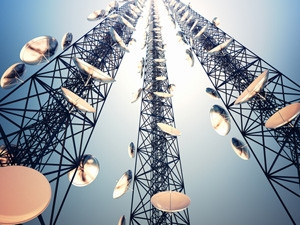
MTN SA has teamed up with Ericsson to trial LTE-Unlicensed (LTE-U) at MTN's flagship channel store in Morningside, Johannesburg.
LTE-U is a wireless protocol intended to let carriers make partial use of the currently unlicensed 5GHz spectrum.
LTE-U extends the benefits of LTE and LTE Advanced to the unlicensed spectrum, enabling mobile operators to offload data traffic onto unlicensed frequencies more efficiently and effectively.
"LTE-U is designed to take advantage of the capacity available in the unlicensed 5GHz band spectrum. Through aggregating licenced spectrum with unlicensed spectrum a bigger LTE carrier is created. The ability to aggregate spectrum is one of the primary benefits of LTE," says Krishna Chetty, acting chief technology officer at MTN SA.
Using this technology, MTN is able to combine its LTE spectrum with portions of the 5GHz spectrum band to enable LTE-Unlicensed, adds Chetty.
Rethink Technology Research states operators can provide increased capacity and speed to localised sites where there is a high level of traffic and limited spectrum availability by using either LTE-U or a combination of LTE and WiFi.
According to Ericsson, this is the first LTE-U trial in Africa. It demonstrates MTN's drive towards introducing innovative technologies to help improve its network quality experience, it adds.
The trial was completed by aggregating 10MHz of MTN's licensed 1800MHz spectrum and 20MHz within the unlicensed 5GHz band.
The trial achieved a throughput of more than 200Mbps. The aggregation of licensed and unlicensed spectrum in indoor small cells is a key enabler for 5G, the company says.
The trial supports MTN's strategy to drive sustainable growth by driving growth in voice, while developing new opportunities in data, enterprise and financial services as well as content, says Chetty.
"The lack of critical high value spectrum has compelled MTN to combine existing licensed mobile spectrum with unlicensed 5GHz spectrum to cater for the rollout of new generation networks such as LTE-U."
Henrik Linnet, head of practice mobile broadband at Ericsson Sub-Saharan Africa, says the solution, when fully operational, will allow MTN to boost data speeds and coverage in the cellular network and support the growth of indoor traffic by using the unlicensed 5 GHz band already populated by WiFi devices.
Meanwhile, Samsung Electronics and Qualcomm Technologies have partnered to deliver small cell technologies and products supporting LTE-U.
Samsung says as the amount of data services and smartphone devices dramatically increase, more spectrum is required to accommodate fast-growing data traffic and to help ensure a great user experience.
While licensed spectrum provides the highest spectral efficiency among all spectrum types and remains the top priority for operators, unlicensed spectrum is playing an increasingly important role allowing for opportunistic data offload, says Qualcomm.
Share